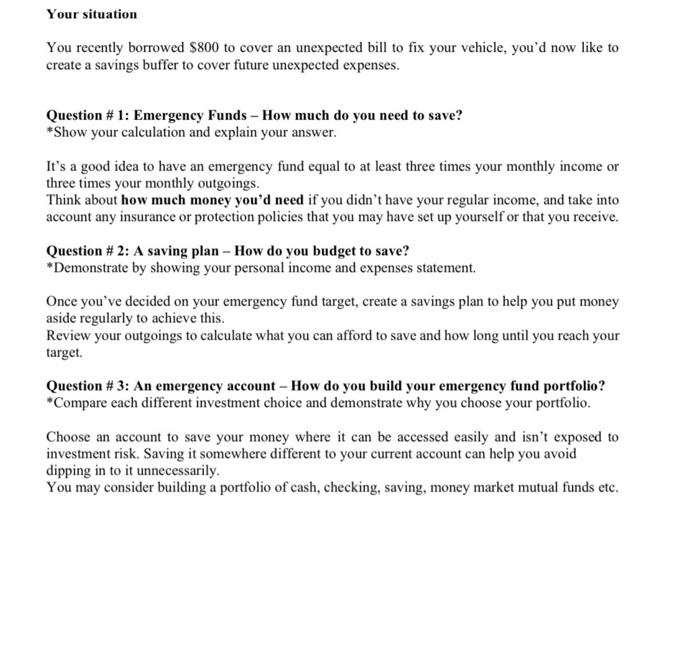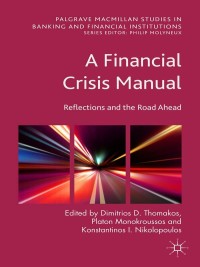you can make up your scenario if you do not have enough income ams expenses information

Your situation You recently borrowed $800 to cover an unexpected bill to fix your vehicle, you'd now like to create a savings buffer to cover future unexpected expenses. Question # 1: Emergency Funds - How much do you need to save? *Show your calculation and explain your answer. It's a good idea to have an emergency fund equal to at least three times your monthly income or three times your monthly outgoings. Think about how much money you'd need if you didn't have your regular income, and take into account any insurance or protection policies that you may have set up yourself or that you receive. Question # 2: A saving plan - How do you budget to save? *Demonstrate by showing your personal income and expenses statement. Once you've decided on your emergency fund target, create a savings plan to help you put money aside regularly to achieve this. Review your outgoings to calculate what you can afford to save and how long until you reach your target. Question # 3: An emergency account - How do you build your emergency fund portfolio? *Compare each different investment choice and demonstrate why you choose your portfolio. Choose an account to save your money where it can be accessed easily and isn't exposed to investment risk. Saving it somewhere different to your current account can help you avoid dipping in to it unnecessarily. You may consider building a portfolio of cash, checking, saving, money market mutual funds etc. Your situation You recently borrowed $800 to cover an unexpected bill to fix your vehicle, you'd now like to create a savings buffer to cover future unexpected expenses. Question # 1: Emergency Funds - How much do you need to save? *Show your calculation and explain your answer. It's a good idea to have an emergency fund equal to at least three times your monthly income or three times your monthly outgoings. Think about how much money you'd need if you didn't have your regular income, and take into account any insurance or protection policies that you may have set up yourself or that you receive. Question # 2: A saving plan - How do you budget to save? *Demonstrate by showing your personal income and expenses statement. Once you've decided on your emergency fund target, create a savings plan to help you put money aside regularly to achieve this. Review your outgoings to calculate what you can afford to save and how long until you reach your target. Question # 3: An emergency account - How do you build your emergency fund portfolio? *Compare each different investment choice and demonstrate why you choose your portfolio. Choose an account to save your money where it can be accessed easily and isn't exposed to investment risk. Saving it somewhere different to your current account can help you avoid dipping in to it unnecessarily. You may consider building a portfolio of cash, checking, saving, money market mutual funds etc








